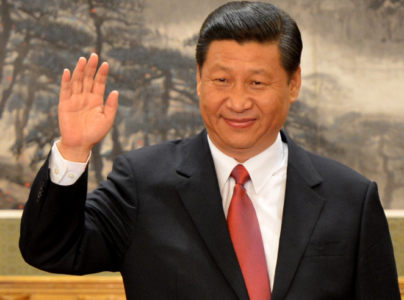With President Xi Jinping’s steady leadership, analysts predict incremental rather than transformative economic reforms at the upcoming CCP plenum.
SINGAPORE: The much-anticipated third plenum of China’s Communist Party (CCP) is set to take place from July 15-18, signaling a potential roadmap for the world’s second-largest economy amidst ongoing domestic and global challenges. However, experts anticipate incremental adjustments rather than sweeping reforms, as President Xi Jinping enters the 11th year of his leadership.
What is the Third Plenum?
Often referred to as san zhong quan hui in Mandarin, the third plenum is a critical meeting of the CCP Central Committee, typically held seven times within each five-year term. Historically, these sessions have been platforms for significant economic and political announcements, such as Deng Xiaoping’s 1978 reforms that opened China’s economy to private and foreign investment.
This year’s plenum breaks from tradition, occurring in July instead of the usual October or November timeline. Analysts interpret this deviation as a strategic move by President Xi to set economic priorities amidst increasing pressures, both domestic and international.
Economic Challenges Dominate the Agenda
The focus of the 2024 plenum is expected to center on economic reforms, including advancements in high-tech industries, fiscal restructuring, and reducing local protectionism. Analysts like Neil Thomas from the Asia Society Policy Institute highlight themes such as fostering innovation in artificial intelligence and big data as priorities for sustaining growth amidst a property downturn and sluggish consumer spending.
However, significant policy shifts are unlikely. “Observers often expect groundbreaking reforms, but under Xi’s extended leadership, transformative changes seem improbable,” noted Assoc. Prof. Alfred Wu from Singapore’s Lee Kuan Yew School of Public Policy.
Historical Context and Current Goals
The third plenum carries historical weight as a platform for recalibrating China’s long-term strategy. Past iterations have introduced major shifts, such as the 2013 promise to let markets play a decisive role in resource allocation. This year, economic modernization and overcoming structural obstacles will likely be emphasized, as President Xi aims to cement his vision of “Chinese-style modernization.”
Leadership Changes and Party Discipline
Beyond economic policies, observers are keen to see if leadership changes will be formalized. Recent high-profile dismissals, such as those of former defense ministers Li Shangfu and Wei Fenghe, and the speculation around former foreign minister Qin Gang, underscore an ongoing anti-corruption campaign within the CCP.
Analysts believe the plenum offers Xi an opportunity to consolidate power and reinforce party discipline. “This meeting provides Xi the chance to clean house in the central committee,” noted Thomas.
Broader Implications
The plenum comes at a time when China faces strained ties with the United States and growing domestic economic concerns. While expectations for groundbreaking reforms are tempered, the session may yield incremental measures aimed at stabilizing growth and addressing structural inefficiencies.
For China watchers, the outcomes of this plenum will provide critical insights into the country’s long-term strategy under Xi’s leadership.








